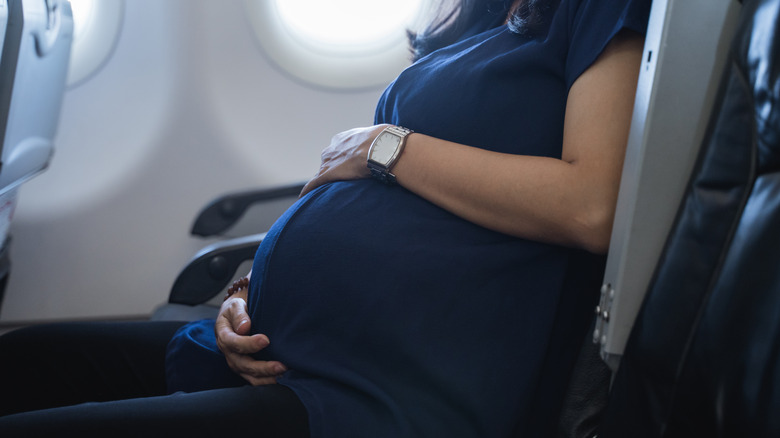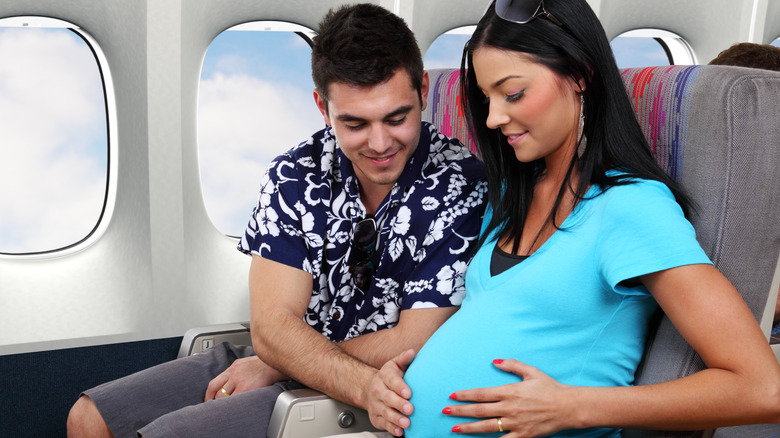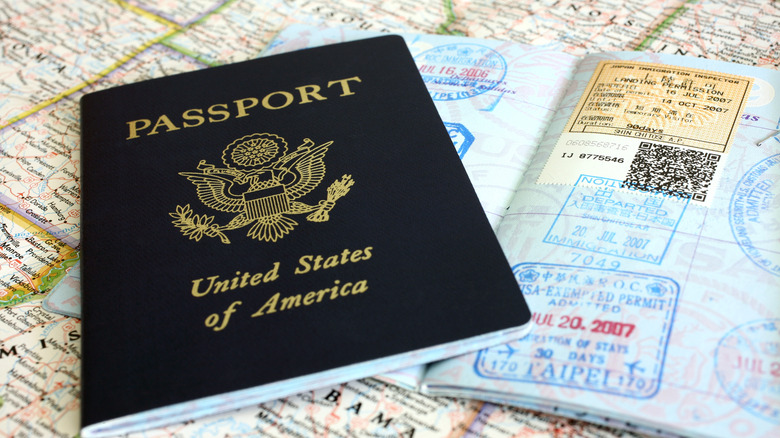What Happens If You Go Into Labor Mid-Flight?
You're happily cruising at 35,000 feet when suddenly, labor pains hit. Before you know it, a flight attendant is delivering your baby in the air, and the plane has been diverted. It sounds like a movie, but it was exactly what happened on a Frontier Airlines flight from Denver to Orlando in 2022.
This scenario, though, is extremely unusual. A rough estimate says that around 75 babies have been born in the air in the last century. Compared to the over 130 million babies born in the world every single year, that number is minuscule. But if you're pregnant and planning to fly, going into labor mid-flight is a concern.
Firstly, it's a rare occurrence because many airlines have policies in place for pregnant people who are planning to travel. American Airlines requires a doctor's certificate stating you're fit to fly if your due date is within four weeks of your flight. Similarly, Frontier requests passengers in their 36th week of pregnancy onwards to provide a medical certificate. But clearly, given what happened on the Orlando flight, this isn't a failsafe. And when you have to push, you have to push. So what happens?
Going into labor in the air
The scenario on the Frontier Airlines flight is illustrative of what may happen when labor progresses quickly. There are no industry-wide regulations on what to do when someone goes into labor on a flight, though procedures are usually similar. The person giving birth will often be moved to a more comfortable and spacious part of the plane. The familiar call asking for medical professionals onboard the aircraft to make themselves known will go out. And flight attendants, who have medical training but are not specifically trained to help people in labor, will assist in delivering, or even deliver, the baby.
The flight may or may not be diverted mid-air if someone is in labor. The Frontier flight from Denver was diverted to Pensacola, and a Bangkok-bound flight with Qatar Airways was diverted to Kolkata when a baby boy was born in the air in 2020. However, because diversions are costly and inconvenient, pilots may continue to their destination if baby and parent are both healthy. The flight will simply land with one extra (extra cute) passenger.
Citizenship and benefits
A child born in the air is a truly global citizen. But "the world" doesn't issue passports in the same way that, say, the U.S. does. So which country does a baby born mid-flight belong to? It depends on the airspace they're in when born, the nationality of the carrier aircraft, and who their parents are.
Babies born in U.S. airspace generally acquire U.S. citizenship as a birthright, much the same as they would if they were born at ground level. The same goes for babies born over Canada. However, the United Kingdom and many other countries do not grant birthright citizenship, and babies tend to acquire the citizenship of their parents only. Occasionally, the baby might acquire the citizenship of the territory the airplane is registered in.
Are there any benefits to being born mid-flight? That depends on whether the airline chooses to capitalize on what could be an excellent P.R. opportunity. When baby Virginia was born on a Virgin Atlantic flight in 2004, she received free flights until she reached the age of 21. Virgin also named one of their planes Virginia in her honor. British Airways gave a baby born aboard one of its planes a free flight to Australia for her 18th birthday. So, while going into labor mid-flight might be scary, know that you're not the first and nor will you be the last to give birth mid-air, a planeload of passengers will be cheering you on, and your new baby could even get a plane named after them. That's quite the birthday gift.


